- Learning time
- 30 minutes
- First play time
- 120 minutes
Beta Colony
Designed by: Ben Pinchback,Matt Riddle
Earth, in a far-distant future, has been overrun by bad guys. The players have escaped into the vastness of space and are settling on a new planet: establishing the Beta Colony of the title, and hoping to become the new planet’s leader.
The board shows three colony sites Xi’an, Thebes and Cuzco, as well as the available actions above them players utilise in order to build the colonies. Over nine rounds, a starting player rolls four coloured dice and the other players flip their own dice to match the rolled numbers. Then players take turns in the following way: each turn uses two dice; one to move your ship to a new location (travelling clockwise around the rondel of actions), and the other to activate the location. Activating three of the locations brings you resources: water, organic matter, and several others are all represented by coloured cubes. Another two locations allow you to pay resources in order to build various coloured pods, the component parts of the growing colonies. The number on the die defines which pod you can buy, but you need a matching coloured resource cube to purchase it, and another resource cube to place it in a colony – the colour you pay defines which spaces are available to you: a yellow resource for a yellow space, and so on.
Why are you building pods? For two reasons. Most pods allow you to place crew members on them, and at the end of the game the player with the most crew members in a colony will score points. In the short term though, pods will push you up a colony’s influence track, and this triggers rewards such as points, resources, artefacts, or fuel. (Being next to the central pod (or other pods of the same colour) get you extra influence, so you need to place wisely)
Artefacts can be traded in at another location on the board to build buildings (for points and and an in-game bonus) or statues, which will get you points at the end of the game. Fuel gets you no points at all, but it can be absolutely crucial during play, as it allows you to manipulate the values of your dice: giving you more freedom of movement around the locations, and flexibility on the actions you take.
The colours of the dice come into play when collecting resources from the three available locations: using a certain colour die will give you a point on the score track, so that’s an additional thing to factor into your thinking!
Finally the nine rounds are broken into three cycles, and the start of each cycle triggers a bonus for everyone, and the end of a cycle can reward you with points if you meet that cycle’s criteria: having crew members next to colony centres, for instance, or having a certain amount of influence across all the colonies.
After nine rounds bonus points are scored for statues and majorities in the colonies, and any artifacts still in hand are worth a point. Most points: wins.
The guru's verdict
-
Take That!
Take That!
We might be out in space, but we're not fighting any Star Wars-style battle: the fight here is to be top dog as the tactical planning strategist, or something like that. But despite the game's peaceful overtures, there is a strand of light menace running from Beta Colony: you absolutely can spot what someone else is planning and make best efforts to hamper them by taking and placing pods in a way that denies someone a bumper reward.
-
Fidget Factor!
Fidget Factor!
Like most category 3 (complexity) games, it may be fairly high on that initial outing. And it may remain high - or moderate - depending on the players, as each round is laden with decisions: you may only have four dice, but - with the additional option of fuel - options are many.
-
Brain Burn!
Brain Burn!
So the mostly-tactical challenge here is springing as many influence bonuses as you can whilst not neglecting to add crew members to the colonies (some pods don't allow them!). If you can ally that with a statue or two for some juicy end-game bonuses, all the better.
-
Again Again!
Again Again!
Pods are revealed randomly and the cycle bonus/reward cards can change from game to game. Much of the replay value here is in the delight of the play itself though: not so much a race as multiple intertwining races - a crossing of the streams, in space.

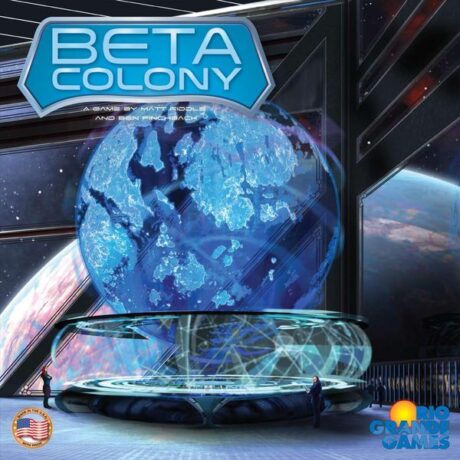

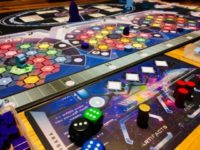
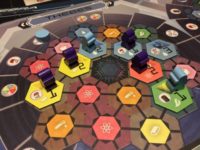
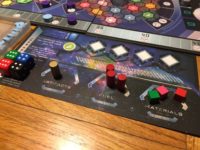
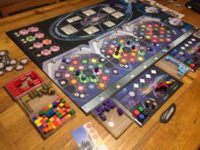


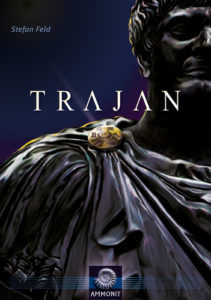
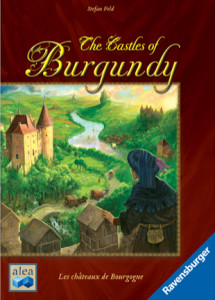
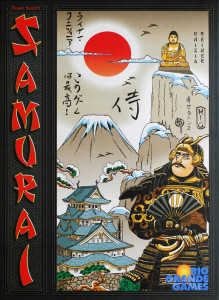
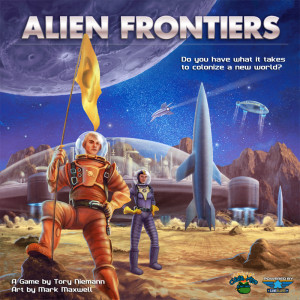
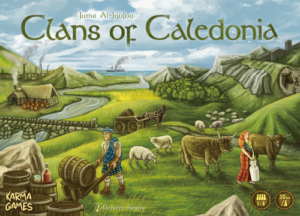
Sam says
Beta Colony is an unusual game in that, like Kepler 3042, it sends you barrelling into the far reaches of the cosmos whilst foregoing the usual epic battle of ideologies/explosions. Instead you're more like passive-aggressive city planners, building in each other's way and then shrugging your way out of a quarrel by shuffling apologetically onto the next committee meeting. And if that sounds like I found Beta Colony underwhelming, or more work than play, the opposite is true. I like a game with a puzzle and Beta Colony is certainly that: the puzzle of figuring out the best use for your dice, the attendant problem of which resources you need to build which pod where, and the not-inconsiderable issue that another player is just about to blow this plan up in your white-collar space-face. It doesn't feel like an iconic or groundbreaking game, no - more like Trajan in Space - but it doesn't have to be those things: it's clever, fun, and clever fun.